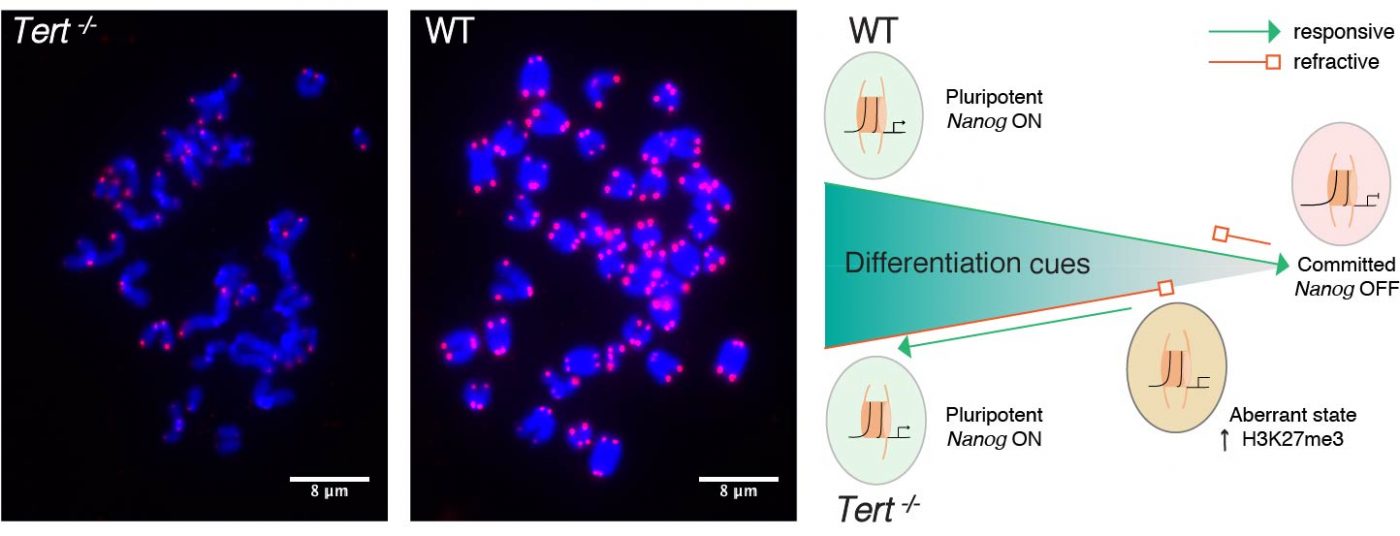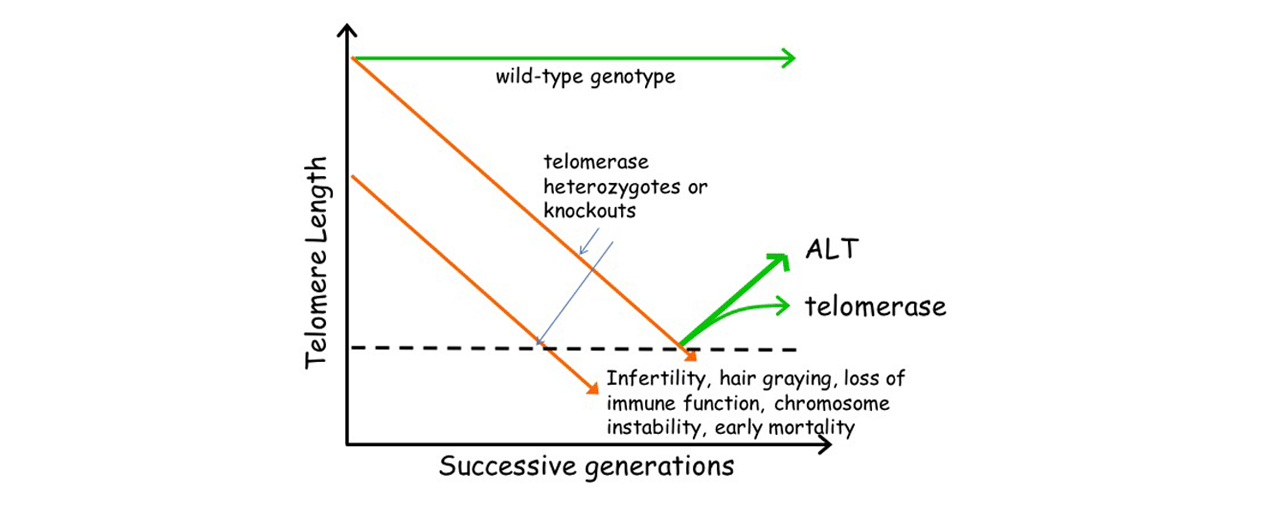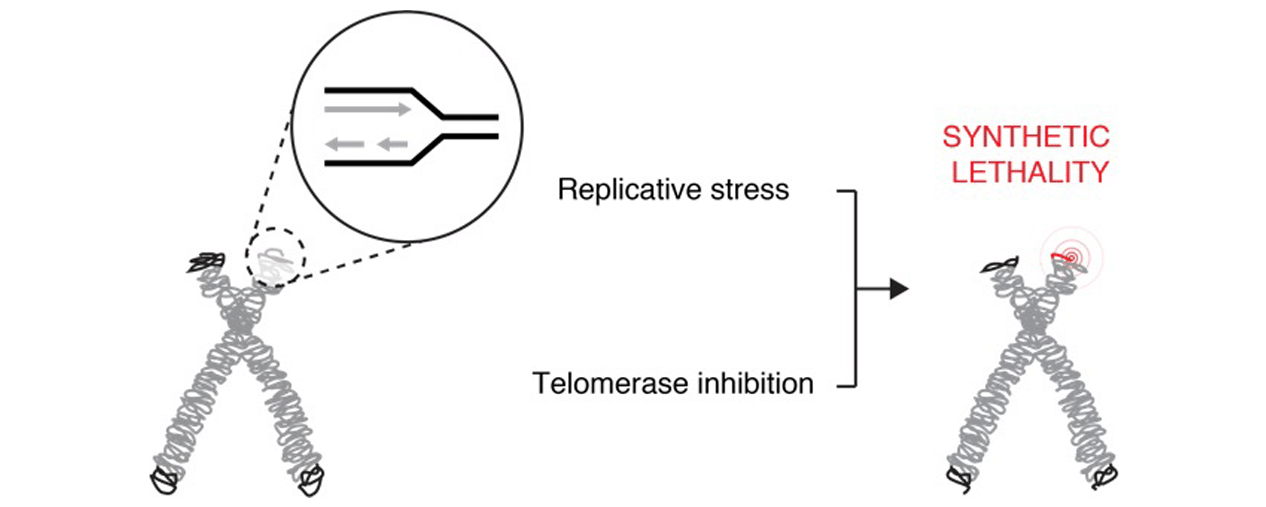Welcome to the Harrington Lab!
We study the mechanisms by which cells maintain genome integrity through the maintenance of their chromosome ends, called telomeres.
Our goal is to understand how factors that influence the equilibrium of these non-coding, G-rich telomeric regions impact the fate of stem cells, normal cells and tissues during aging, and in cancer. This work involves investigation of biochemical, genetic and epigenetic alterations in normal mammalian cells and cancer cells across species including budding yeast, humans, mice and even wild sheep.
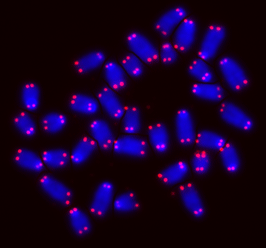
We welcome you to explore this website, and we hope you’ll also be intrigued to learn more!
Our studies are relevant to human diseases in which telomere erosion results in bone marrow failure and other immunological disorders (called ‘telomeropathies’), and may also have implications in the treatment of many cancers, especially those whose prevalence increases with age.
Recent Publication
A novel p53 regulator, C16ORF72/TAPR1, buffers against telomerase inhibition
Benslimane Y, Sánchez-Osuna M, Coulombe-Huntington J, Bertomeu T, Henry D, Huard C, Bonneil É, Thibault P, Tyers M, Harrington L
Telomere erosion in cells with insufficient levels of the telomerase reverse transcriptase (TERT), contributes to age-associated tissue dysfunction and senescence, and p53 plays a crucial role in this response….
View PaperThe Team
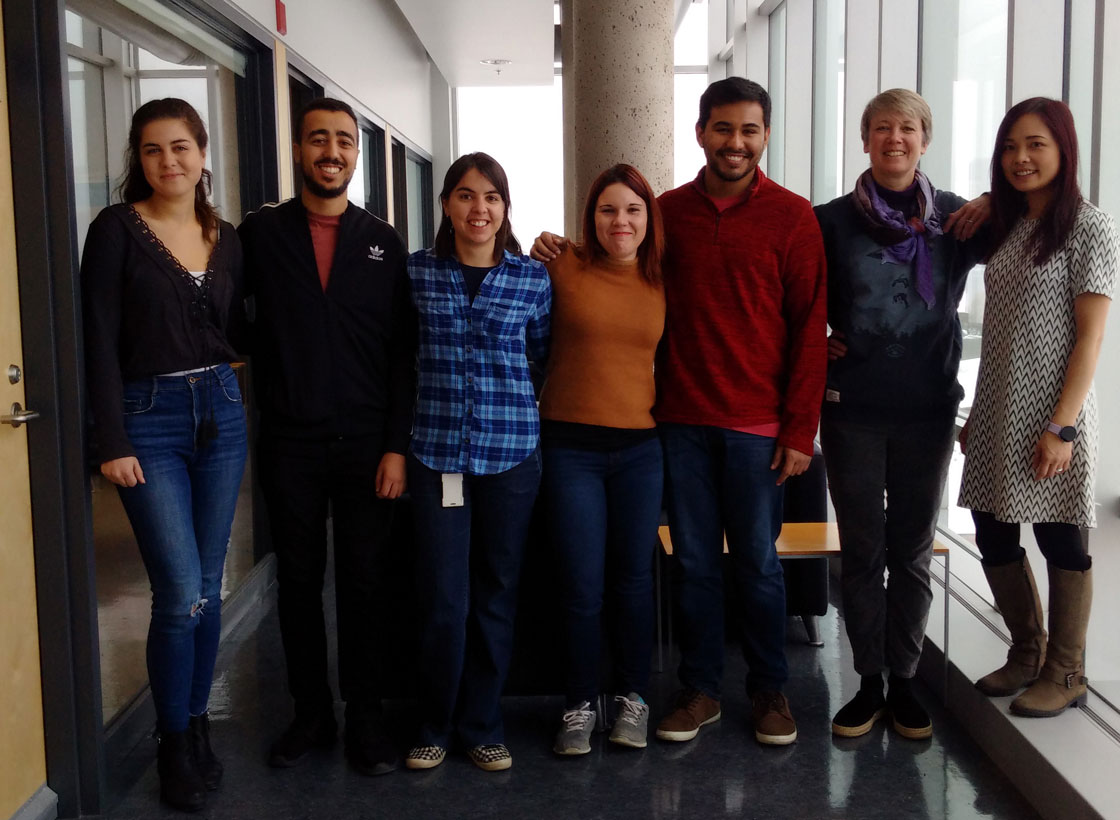
Team members left-to-right:
Danielle Henry, M.Sc. Graduate
Yahya Benslimane, Ph.D. Graduate
María Sánchez-Osuna, Post-doctoral Fellow
Mélanie Criqui, Ph.D. Graduate
Gustavo Borges, Ph.D. Candidate
Lea Harrington, Principal Investigator
Josephine Chu, Post-doctoral Fellow

